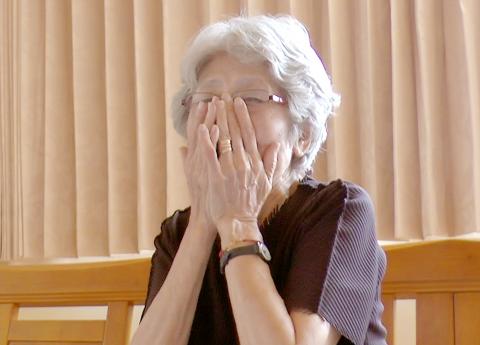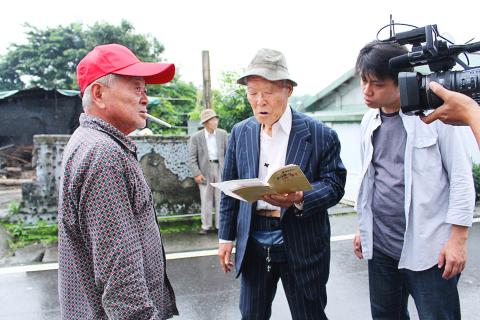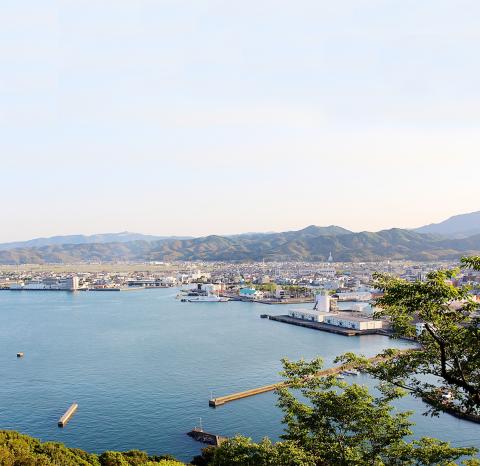One episode in Taiwan’s forgotten, even deliberately buried, past has been recovered in the documentary Wansei Back Home (灣生回家). It starts in Jian Township (吉安), Hualien County, where few can recall life during the Japanese colonial era, when the place was known as Yoshino Village. It was one of the first Japanese settlements in Taiwan, built to encourage Japanese families to emigrate to the new colony.
Japanese settlers came with everything they had and a one-way ticket. They farmed, went to school and gradually made Taiwan their home. Then in August 1945 Japan surrendered to the Allies, ending World War II. More than 470,000 Japanese were repatriated, with over half that number accounting for wansei, or Japanese citizens born in Taiwan during the colonial period from 1895 to 1945.
These wansei, many of whom considered Taiwan their home, were met with discrimination and hostility upon returning home to post-war Japan.

Photo courtesy of Activator Marketing Company
Wansei Back Home began as a personal project when Mika Tanaka first visited Jian in 2003, when she was determined to learn more about her late grandmother, who had kept her wansei identity secret.
Since then, Tanaka has found over 200 survivors, most in their 70s and 80s, across Japan and Taiwan. She teamed up with a Taiwanese film crew, including director Huang Ming-cheng (黃銘正) and composer Baby C (鍾興民), and produced an intimate, heartfelt portrait of the wansei through interviews, old photographs, archival footage and animated sequences.
As the wansei visit their childhood homes, it immediately becomes apparent that they’ve maintained a deep connection to Taiwan.

Photo courtesy of Activator Marketing Company
Eighty-eight year-old Masaru Tominaga, for example, can still speak Hoklo and sing old Taiwanese ballads such as Flowers in the Rainy Night (雨夜花). His home in Tokushima is crammed with books about Taiwan. During his trip to Hualien, the octogenarian bursts into tears when he learns that all his old friends have passed away.
Kosei Matsumoto, who also visited Hualien, says that growing up the child of farmers in Taiwan made it extremely difficult to assimilate into Japanese society. Nobuko Takenaka says repatriation was particularly daunting for her family, who had settled in Suao for three generations before the end of World War II.
Eighty-five year-old Taeko Iekura agrees. However, she adds that she has come to terms with the fact that her birth in Taiwan has forever branded her a foreigner in Japan.

Photo courtesy of Activator Marketing Company
Although many wansei recall with nostalgia their life in Taiwan and the hardship and poverty they faced after they arrived in Japan, the documentary largely avoids direct criticism.
Iekura says that even though her father worked as a government official at the Office of the Governor-General of Taiwan, her family had no place to live after returning to Japan and were forced to seek shelter at different temples.
With its rarely discussed and obscure subject matter, Wansei Back Home calls out for deeper treatment than is offered here. Nevertheless, the film makes an adequate attempt at rediscovering personal histories and serves as a starting point for those interested in examining more about the past before those who can narrate it first hand disappear.

We lay transfixed under our blankets as the silhouettes of manta rays temporarily eclipsed the moon above us, and flickers of shadow at our feet revealed smaller fish darting in and out of the shelter of the sunken ship. Unwilling to close our eyes against this magnificent spectacle, we continued to watch, oohing and aahing, until the darkness and the exhaustion of the day’s events finally caught up with us and we fell into a deep slumber. Falling asleep under 1.5 million gallons of seawater in relative comfort was undoubtedly the highlight of the weekend, but the rest of the tour

Youngdoung Tenzin is living history of modern Tibet. The Chinese government on Dec. 22 last year sanctioned him along with 19 other Canadians who were associated with the Canada Tibet Committee and the Uighur Rights Advocacy Project. A former political chair of the Canadian Tibetan Association of Ontario and community outreach manager for the Canada Tibet Committee, he is now a lecturer and researcher in Environmental Chemistry at the University of Toronto. “I was born into a nomadic Tibetan family in Tibet,” he says. “I came to India in 1999, when I was 11. I even met [His Holiness] the 14th the Dalai

Following the rollercoaster ride of 2025, next year is already shaping up to be dramatic. The ongoing constitutional crises and the nine-in-one local elections are already dominating the landscape. The constitutional crises are the ones to lose sleep over. Though much business is still being conducted, crucial items such as next year’s budget, civil servant pensions and the proposed eight-year NT$1.25 trillion (approx US$40 billion) special defense budget are still being contested. There are, however, two glimmers of hope. One is that the legally contested move by five of the eight grand justices on the Constitutional Court’s ad hoc move

Stepping off the busy through-road at Yongan Market Station, lights flashing, horns honking, I turn down a small side street and into the warm embrace of my favorite hole-in-the-wall gem, the Hoi An Banh Mi shop (越南會安麵包), red flags and yellow lanterns waving outside. “Little sister, we were wondering where you’ve been, we haven’t seen you in ages!” the owners call out with a smile. It’s been seven days. The restaurant is run by Huang Jin-chuan (黃錦泉), who is married to a local, and her little sister Eva, who helps out on weekends, having also moved to New Taipei